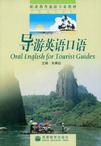导游英语口语
2004-7
高等教育出版社
关肇远,关肇远 编
310
无
随着2008年北京奥林匹克运动会和2010年上海世界博览会的申办成功,蓬勃向上的中国旅游业无疑地获得了在未来几年中实现跨越式发展的契机和机遇。为了加快推动我国旅游事业的发展进程,更为了“让世界更好地了解中国”,我国的涉外导游工作者们必须在拥有丰富专业知识的同时,在外语的正确表达和灵活使用的能力上有进一步的提高,努力做到能够使用规范的语言向世界展示中国悠久的历史、灿烂的文化传统,和在现代化建设道路上取得的伟大成就。 多年来,依靠我国各个层次的旅游教育,越来越多的专业人才逐渐加入到我国年轻的旅游事业之中,年轻的涉外导游队伍茁壮成长,从而保证了我国国内和国际旅游业的飞速发展。但是,笔者在多年旅游英语的教学过程中,深感不少旅游专业的学生和导游人员难以用地道的英语向来自欧美的游客们介绍悠久灿烂的中国文化传统.以及当前中国改革开放的大好形势。为了获得地道的语言表达手段,不少导游人员偏爱西方学者编撰的有关中国的旅游书籍。但此类书籍鱼龙混杂,其中有些使用的资料陈旧,有些偏好渲染落后现象,有些甚至表现出作者的偏见,等等。 为此,笔者根据教学需要,参阅国内外多本著作和教材,结合多年的英语口语教学,以及赴美教学期间所获得的成效和经验,选择了20个话题,在中外同仁的支持和帮助下,精心编写并郑重推出了此本《导游英语口语》,以期对中国未来的旅游业和旅游教育事业的进一步发展,起到抛砖引玉、添砖加瓦的作用。 《导游英语口语》参照了国家旅游局人事劳动司主持编写的《全国导游人员资格等级考试系列教材——英语》和《全国导游人员资格等级考试复习大纲(试用)》所规定的内容、功能意念和相关词汇编写而成。《导游英语口语》以导游员刘岚与美国游客戴维斯夫妇(马克和简)之间的谈话的主线,内容包括了有关中国历史、社会、文化、宗教等一般知识;帮助客人预订、设计行程、介绍市内交通、接受投诉、处理应急、机场送客等导游员的职责;以及我国改革与开放、基本国策和旅游业发展等,共20个场景。国内外最新发生的各种重大事件,如中国加入wT0、2008年北京奥运会和2010年上海世博会、恐怖主义、“非典”等对旅游业具有正负面影响的内容均在对话中得到一定的体现。
《导游英语口语》以导游员刘岚与美国游客戴维斯夫妇(马克和简)之间的谈话为主线,内容包括了有关中国历史、社会、文化、宗教等一般知识,帮助客人预订、设计行程、介绍市内交通,接受投诉、处理应急、机场送客等导游员的职责,以及我国改革开放、基本国策和旅游业发展等,一共20个场景。国内外最新发生的各重大事件,如中国加入WTO、北京上海分别成功申办2008年奥运会和2010年世博会、恐怖主义、“非典”等,以及它们对旅游业带来的正面或负面影响,在对话中也得到一程度的体现。全部课文用对话形式,配有词汇,语言和文化背景注释和重点句型的拓展,以帮助学生掌握每课的内容,并能在此基础上灵活运用。每课后提供的阅读短文,是对话内容的简单扩展,教师可以作为阅读或翻译作业让学生课后完成,也可作为课堂上朗读材料加以使用。阅读短文的单词和词组不要求学生掌握,也未列入总词汇表。为了增加学生的学习兴趣,每一课最后都提供一句与课文相关的“经典名言”,希望学生能熟读牢记。每段对话后的练习分四个部分:第一部分为听力练习部分,由教师提出几个问题(前十课)或朗读几个句子(后十课),学生根据课文的内容,给出简单的答案或者做出正确与否判断。这些问题和句子在《参考答案》提供,教师应事先有所准备;第二、三部分学生根据课文的内容,完成各种类型的练习。这部分往往是课文的重点;第四部分是口头连续表达练习。学生根据课文提供的信息,或也根据自己的知识和体验,以对话形式,再现课文中某个重要部分的内容。《导游英语口语》适用于中等旅游学校导游专业的高年级学生,也可以作为旅游英语口语教材为旅游高等院校的学生所使用,还可供在职导游工作人员和广大旅游爱好着参阅使用。
Lesson OneMeeting Guests at the Airport机场迎客Dialogue 1.1 At the Immigration Office 边防检查Dialogue 1.2 At the Customs Office 通过海关Dialogue 1.3 Hello! Welcome to China! 欢迎光临Reading Passage China —— a Country of Ancient Civilization古国话文明Lesson TwoHelping with Lodging 安排住宿Dialogue 2.1 Checking-in 登记入住Dialogue 2.2 Foreign Currency Exchange 兑换外币Dialogue 2.3 Itinerary Planning 安排行程Reading Passage One Headache when Traveling Abroad旅行有烦恼Lesson Three Helping with Reservation 帮助预订Dialogue 3.1 Hotel Room Reservation 预订客房Dialogue 3.2 Airline Ticket Reservation 预订机票Dialogue 3.3 Reserving Tickets to an Exhibition 预约展事Reading Passage Reserve a Room in and from Anywhere in the World处处可预订Lesson Four City Transportation 城市交通Dialogue 4.1 Bus Service公交服务Dialogue 4.2 Subway and Light Rail Service地铁轻轨Dialogue 4.3 Car Rental Service 租车服务Reading Passage What a Traveler Rates as More Important 交通亦重要Lesson Five Shopping 旅游购物Dialogue 5.1 Supermarkets 超级市场Dialogue 5.2 Antiques and Ancient Furniture 古玩家具Dialogue 5.3 Folk Handicrafts 民间工艺Reading Passage The Best of Both Worlds for Avid Shoppers 购物去天堂Lesson Six City Sightseeing 都市观光Dialogue 6.1 Deluxe City Tours 都市豪游Dialogue 6.2 Business Tours 商务旅游Dialogue 6.3 Industrial Tours 工业旅游Reading Passage To See the City from Another Angle 城市新视角Lesson Seven Food Culture 饮食文化Dialogue 7.1 Four Distinctive Cuisines 四大菜系Dialogue 7.2 The art of Chinese Cooking 烹饪艺术Dialogue 7.3 Vegetarian and Medical Cuisine 健康饮食Reading Passage What Confucius Thought of Eating 孔子话饮食Lesson Eight Tea Culture 茶文化Dialogue 8.1 China —— Home of Tea 茶乡中国Dialogue 8.2Famous Varieties of Tea 茶的精髓Reading Passage The 21st Century —— the Century of Tea 新世纪,茶世纪Lesson Nine Garden Culture 园林文化Dialogue 9.1 Traditional-Style Gardens 传统园林Dialogue 9.2 History of the Chinese Garden 园林史话Dialogue 9.3 Four Elements in a Traditional Garden 园林四要素Reading Passage Always Beautiful No Matter the Season西湖总是春Lesson Ten Arts and Culture 文化艺术Dialogue 10.1 Kunqu Opera 昆曲艺术Dialogue 10.2 Ballet and Dance-Drama 芭蕾舞剧Dialogue 10.3 National Music 民族音乐Reading Passage Acrobatics —— "Peoples Art" in China 人民的艺术Lesson Eleven Leisure and Recreation 休闲娱乐Dialogue 11.1 Indoor Sports 室内体育Dialogue 11.2 X-Games 极限运动Dialogue 11.3 Water Sports and Seaside Games 水上运动Dialogue 11.4 Cyber Café and Bars 网吧酒吧Reading Passage Urban Nightlife 都市不眠夜Lesson Twelve Tourist Events and Festivities 旅游节庆Dialogue 12.1 "New Beijing, Great Olympics" 北京奥运Dialogue 12.2 "Better City, Better Life" 上海世博Dialogue 12.3 Traditional Spring Festival 传统春节Reading Passage Baao Forum for Asia 博鳌亚洲论坛Lesson Thirteen Tourism Development 旅游发展Dialogue 13.1 Domestic Tourism 国内旅游Dialogue 13.2 Inbound Tourism 入境旅游Dialogue 13.3Outbound Tourism 出境旅游Reading Passage China by the Year 2020 中国之2020Lesson FourteenComplaints 抱怨投诉Dialogue 14.1 A Delayed Flight 航班延误Dialogue 14.2 Being Overcharged in a Restaurant 就餐被宰Dialogue 14.3 A Tour Guide or a Shopping Guide 导游导购Dialogue 14.4 Cancellation of Part of Itinerary 取消行程Reading Passage Should the Chinese Learn English or Westerners Learn Chinese 西方汉语热Lesson Fifteen Emergency 应急处理Dialogue 15.1 A Lost Passport 遗失护照Dialogue 15.2 A Traffic Accident交通事故Dialogue 15.3 Being Sick 患病受伤Reading Passage Why Should We Complain? 抱怨何其多Lesson Sixteen State Policies 国家政策Dialogue 16.1 Economic Reforms 经济改革Dialogue 16.2 Opening Up to the Outside World 对外开放Dialogue 16.3 Family Planning 计划生育Dialogue 16.4 "One Country, Two Systems"一国两制Dialogue 16.5 Peaceful Reunification 和平统一Reading Passage Common Interests Outweigh Differences 求大同存小异Lesson Seventeen Religions in China 宗教信仰Dialogue 17.1 Buddhism 佛教Dialogue 17.2 Daoism 道教Dialogue 17.3 Islam 伊斯兰教Dialogue 17.4 Christianity基督教Reading Passage The Three Teachings in Chinese Belief 三教合为一Lesson Eighteen Traditional Chinese Medicine 传统中医Dialogue 18.1 An Ancient Medication of Over 2000 Years 千年医术Dialogue 18.2 The Marriage of Chinese and Western Medicine中西结Dialogue 18.3 Acupuncture and Moxibustion 针灸疗法Reading Passage Balance in Health 平衡即健康Lesson Nineteen Great Family of Nationalities 民族大家庭Dialogue 19.1 The Han and the 55 Nationalities 56个民族Dialogue 19.2 Equality and Unity between Nationalities 平等团结Reading Passage Regional Ethnic Autonomy 民族享自治Lesson Twenty Goodbye, Farewell! 再见,中国!Dialogue 20.1 See You Again Soon! 来年再见Dialogue 20.2 At the Check-in Counter准备登机Reading Passage Chinas Tourism Industry: Opportunities and Challenges 挑战与机遇Vocabulary 总词汇表
M:Lan,we’ll fly to Shanghai next week and stay there for about one month.But I was told that transportation has been one of the city’s greatest problems.Is that true? L:That’s ancient history!To my knowledge,besides the convenient ground transportation system,the city has developed a complete rail transport service system. M:Oh?Maybe 1 will use the subway more often than the other. L: Yeah,its fast,safe and convenient.There are already two subway lines in the city and they join in the center of the city——the People’s Park. M:Where does each line start and end? L:Subw ay No.1 starts at the Shanghai Railw ay Station and ends in Xinzhuang, Songjiang District,crossing half the city from the north to the south-west. M:The names don’t really help me much now.I want to know if there iS a line reaching the Pudong New Area.Our company has an office there. L:Oh,yes.Line No.2 will soon connects the two international airports in the citv—— Hongqiao Airport in the w est and Pudong Airport in the east.And parts of the third line are still under construction. M: Great!We are frequent flyers,you know.So we want to have an easy time getting to either of the two aMorts. L: And the third line,the Pearl Light Rail,that will be completed soon will connect most of the residential areas of the city,and it’s supposed to be the most convenientmeans of transpOrtation for the local citizens. M:I would think SO.The subway is much safer,and helps release the congestion ofthe c ity’s ground transportation. L: Exactly!I Can also show you the route of the Magnetic Levitation Train that isalready on trial operation. M: Youll have a magnetic levitation train of your own! L: Yes.The opening ceremony was televised live last week. M:I find it hard to believe that youll have a magnet train of your own!So far veryfew countries have such advanced transport fac ilities.

无